
Moby recently sent me this photograph and video. Racism always inspires the same visceral reaction. It would be an understatement to say that I was not enraged, moved beyond tears and filled with an immense sense of anger, despair and revelation. Even though I have seen these images many times before, each time, the impact is as absolute. They have never failed to reanimate the horrid realities of the ignorant, hate fueled, racist and violent roots of America's past. In sharp contrast, I was also completely elevated and enlightened by the video, song and Billie's power, courage and spirit. Though the photo and the song are almost 70 years old, I believe they will reverberate in the human psyche forever.
This story must be remembered, not only to remind us of the lowest aspirations of man, but his highest. And though there are thousands of similar stories regarding man's depravity, inhumanity and cruelty, from Darfur to Guantanamo, Abu Gharaib to Auschwitz...each story can help us to remember, understand, aspire, transcend and prevail to the highest aspects of our nature and humanity.
So...here is the history of the song. It was written by a New York activist named Abel Meeropol after seeing the Shipp/Smith photograph. On an side note, Abel was also the adoptive parent of the children of Ethel and Julius Rosenberg, the couple who were executed in the 1950's for allegedly spying for the Russian KGB.
"Strange Fruit"
Single by Billie Holiday
Released: 1939
Genre: Blues
Label: Commodore
Writer: Abel Meeropol
"Strange Fruit" is a song most famously performed by Billie Holiday that condemnsAmerican racism, particularly the practice of lynching and burning African Americans that was prevalent in the South at the time when it was written."Strange Fruit" began as a poem about the lynching of two black men written by a Jewish schoolteacher from the Bronx Abel Meeropol, who used the pen name Lewis Allan (the names of his two children, who died in infancy). Meeropol and his wife were also the adoptive parents of the children of the executed alleged spies Ethel and Julius Rosenberg in the 1950s. "Strange Fruit" was written as a poem expressing his horror at the lynchings, and was first published in 1937 in The New York Teacher, a union magazine. Though Meeropol/Allan often asked others (notably Earl Robinson) to set his poems to music he set Strange Fruit to music himself and the song gained a certain success as a protest song in and around New York. Before Holiday was introduced to the song, it had been performed by Meeropol, by his wife, and by black vocalist Laura Duncan, who performed it at Madison Square Garden.
Meeropol said later that he had been inspired by seeing Lawrence Beitler's photograph of the lynching of Thomas Shipp and Abram Smith in Marion, Indiana. "Strange Fruit" was eventually heard by Barney Josephson the founder of Cafe Society, New York's first integrated nightclub, who introduced it to Billie Holiday. Holiday performed the song at Cafe Society in 1939, a move that by her own admission left her fearful of retaliation. Holiday later said that the imagery in "Strange Fruit" reminded her of her father's death, and that this played a role in her persistence in performing it. The song became a regular part of Holiday's live performances.
Holiday approached her recording label, Columbia, about recording the song, but her producer John Hammond—the man credited with originally discovering her—did not support her choice, and Columbia refused to record the song. Holiday arranged to record it with Commodore, Milt Gabler's alternative jazz label in 1939. She would record two major sessions at Commodore, one in 1939 and one in 1944.
"Strange Fruit" was highly regarded and in time became Holiday's biggest selling record. Though it became a staple of her live performances at the time, Holiday's accompanist, Bobby Tucker, later commented that Holiday would break down after every performance of it.
The "strange fruit" referred to in the song are the bodies of African American men hanged during a lynching. They contrast the pastoral scenes of the South with the ugliness of racist violence. The lyrics were so chilling that Holiday later said "The first time I sang it, I thought it was a mistake. There wasn't even a patter of applause when I finished. Then a lone person began to clap nervously. Suddenly
everyone was clapping and cheering."
The club owner immediately recognized the impact of the song on his audience and insisted that Holiday close all her shows with it. Just as the song was about to begin, waiters would stop serving, the lights in club would be turned off, and a single pin spotlight would illuminate Holiday on stage. During the musical introduction, Holiday would stand with her eyes closed, as if she were evoking a prayer.
The song became an instant success and came to be the piece most identified with Holiday, and was ultimately to become the anthem of the anti-lynching movement. The dark imagery of the lyrics struck a chord, and can be said to have planted one of the first seeds of what would later become the Civil Rights movement of the 50s and 60s.
Saturday, September 15, 2007
Strange Fruit
Posted by
Aaron A. Brooks
at
2:30 AM
![]()
Subscribe to:
Post Comments (Atom)


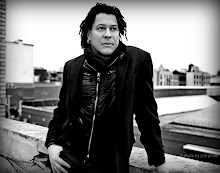


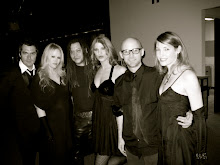
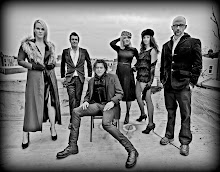










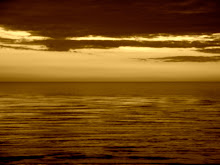










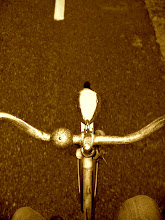



















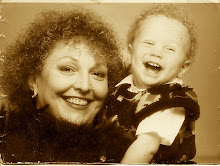





No comments:
Post a Comment